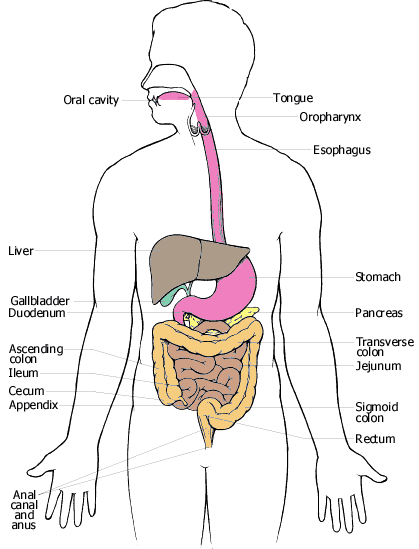DIGESTIVE SYSTEM
 |
Your digestive system consists of organs that break down food into components that your body uses for energy and for building and repairing cells and tissues.
Food passes down the throat, down through a muscular tube called the esophagus, and into the stomach, where food continues to be broken down. The partially digested food passes into a short tube called the duodenum (first part of the small intestine). The jejunum and ileum are also part of the small intestine. The liver, the gallbladder, and the pancreas produce enzymes and substances that help with digestion in the small intestine.
The last section of the digestive tract is the large intestine, which includes the cecum, colon, and rectum. The appendix is a branch off the large intestine; it has no known function. Indigestible remains of food are expelled through the anus.




